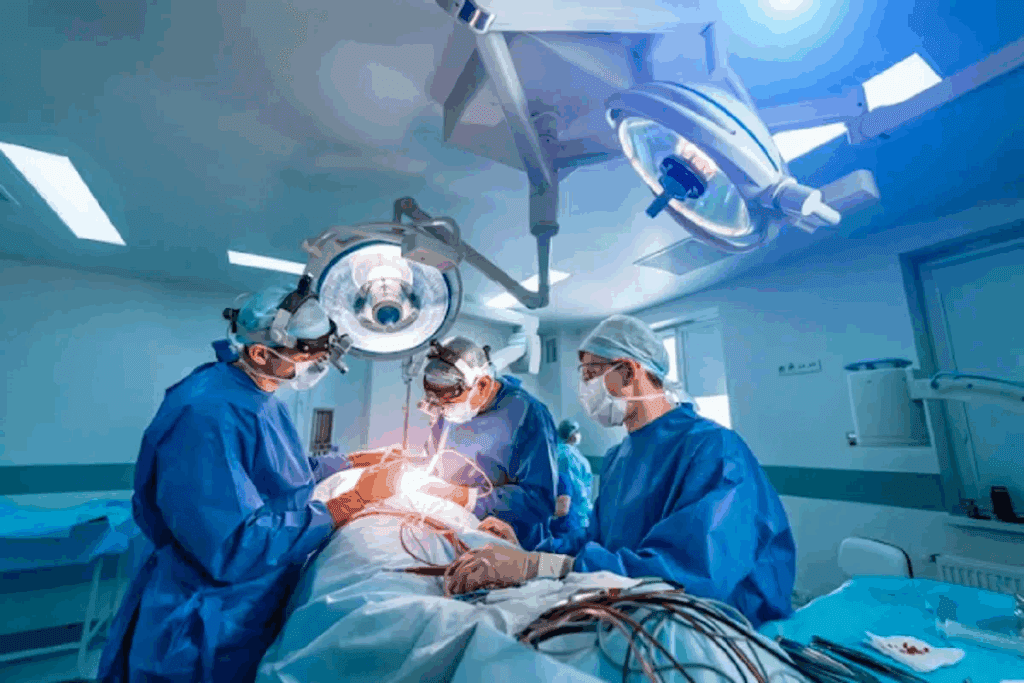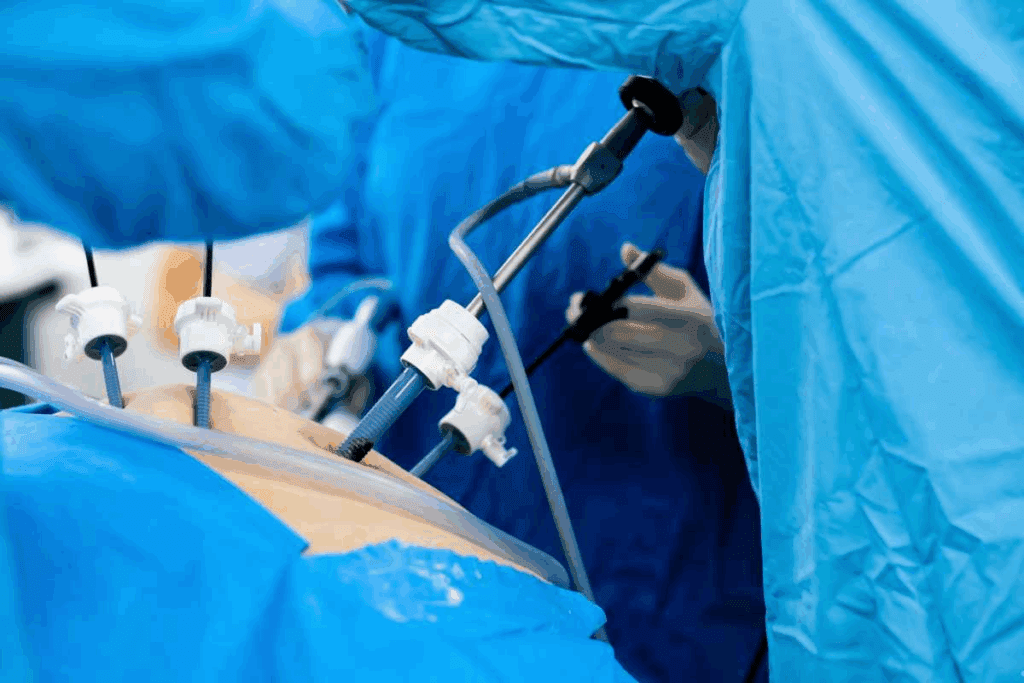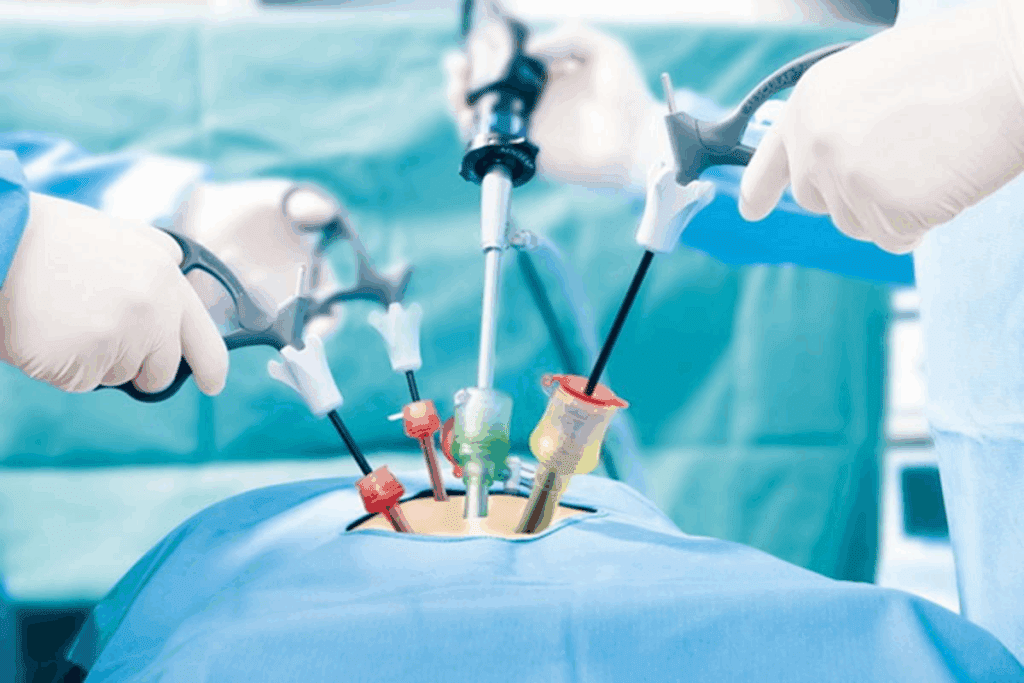Last Updated on November 25, 2025 by Ugurkan Demir

Bladder removal surgery is a complex procedure. It involves removing the bladder, often to treat bladder cancer. At our institution, we focus on giving our patients the best care before this big surgery. A complete guide on how to prepare for bladder removal surgery (cystectomy), including pre-operative tests and post-surgery expectations.
Radical cystectomy is a complex surgery to remove the bladder. It’s often done to treat bladder cancer. This operation needs careful planning and thought.
Choosing to have this surgery comes after trying other treatments. It’s important to know the risks and benefits.
Before surgery, patients need to know about recovery. This includes managing pain and making lifestyle changes.
After surgery, a recovery plan is followed. This includes check-ups and possibly changing your lifestyle.

When a patient is diagnosed with a condition needing bladder removal, the first step is key. The healthcare provider will talk about the patient’s medical history and perform a physical exam. They might also order tests to confirm the diagnosis.
The diagnosis involves several tests, like imaging studies and biopsies. These help find out how serious the condition is. The doctor will then explain the treatment options, including surgery, medication, and other methods.
Before surgery, the patient might need more tests, like blood work or imaging studies. The doctor will guide the patient on how to prepare and what to expect during recovery.
| Test | Description |
| Imaging Studies | CT scans or MRI to visualize the bladder and surrounding tissues |
| Biopsy | A sample of tissue is taken for examination |
| Blood Work | Blood tests to check for any underlying medical conditions |
When you’re facing bladder removal surgery, picking the right team is key. Make sure your surgeon is board-certified and has lots of experience in urologic surgery. It’s also important to have a team that includes urologists, oncologists, and other experts.
Good communication is essential. Look for a team that listens to you and answers your questions clearly. This way, you can feel confident in their care.
After bladder removal surgery, patients have several options for managing their urinary diversion. The main types include ileal conduit, neobladder, and continent urinary reservoir.
An ileal conduit involves creating a conduit from a portion of the intestine to divert urine out of the body. A neobladder is a surgically constructed bladder that allows for more normal urinary function. A continent urinary reservoir is a pouch that stores urine, which is then drained through a catheterizable stoma.
Each option has its own benefits and things to consider. The choice depends on the patient’s health, lifestyle, and personal preferences.

Getting ready for bladder removal surgery means knowing your financial responsibilities. It’s key to check your insurance, figure out what you’ll pay, and look for help with costs.
Look over your insurance to see what’s covered. Make sure it includes surgery, hospital stays, and aftercare.
Calculate what you’ll have to pay yourself. This includes deductibles, copays, and extra services.
Find programs that offer financial help for surgery costs.
To get your body ready for bladder removal surgery, eat a balanced diet. Include fruits, vegetables, whole grains, and lean proteins. Drinking lots of water is also key. Make sure to follow your doctor’s advice and go to any pre-surgery appointments they suggest.
Bladder removal surgery, or cystectomy, is a big deal. It needs careful prep and care after. Your healthcare team will guide you through this. They’ll give you all the pre- and post-op instructions you need.
Getting ready for your hospital stay can really help your recovery. Here are some tips to help you prepare:
By following these tips, you can ensure a smooth and comfortable recovery.
Bladder removal surgery can be scary. It’s key to get ready mentally for the surgery and recovery. Knowing what to expect and having support can lessen anxiety and fear.
Learning about the surgery and recovery is important. It helps you face the challenges ahead. Having loved ones, support groups, and healthcare professionals by your side is also vital. Techniques like deep breathing, meditation, and yoga can ease stress and anxiety, helping you recover better.
Looking at the positive sides of the surgery can also help. It’s about taking charge of your health and well-being.
After bladder removal surgery, you’ll need to get used to a new urinary system. This means learning about managing an ostomy, if you have one. Proper care can really improve your life.
You’ll learn to change your ostomy bags and spot any problems early. With the right help, you can handle this big change well. This way, you can keep living a good life.
Following your doctor’s advice and taking care of yourself is key. This way, you can adjust to your new system and live happily.
As the day before your bladder removal surgery comes, it’s key to follow your doctor’s advice. This ensures a smooth and successful surgery. You’ll need to fast, arrange for care after surgery, and know the surgery’s risks and benefits.
Final Preparations
By following these steps, you can help ensure a successful surgery and a smooth recovery.
Recovering from bladder removal surgery takes time, effort, and support. Knowing what to expect and facing challenges head-on is key. With the right attitude and care, you can move forward and improve your life.
Bladder removal surgery, also known as cystectomy, is a procedure to remove the bladder. It’s often done to treat bladder cancer or other conditions.
There are several types of urinary diversion. These include ileal conduit, neobladder, and continent urinary reservoir.
To prepare, you’ll undergo medical tests and discuss treatment options with your doctor. You’ll also make lifestyle changes, like quitting smoking.
Risks and complications include infection, bleeding, and changes to urinary function.
Recovery time varies. Most patients spend several weeks recovering at home.
Follow-up care includes regular check-ups with your doctor. You’ll also monitor for complications and adjust to any changes in urinary function.
Yes, with proper care and management, many people lead active and fulfilling lives after surgery.
Management includes learning to care for your urinary diversion. This includes cleaning and maintaining it, and managing any complications.
Yes, support groups are available for those who have had bladder removal surgery. They offer emotional support and connect you with others who have had similar experiences.
The long-term effects can vary. They may include changes to urinary function, emotional adjustments, and possible complications.
Bladder Cancer: diagnosis and management – https://www.nice.org.uk/guidance/ng2/chapter/1-Recommendations#surgical-treatments
Before your bladder cancer surgery – https://www.cancerresearchuk.org/about-cancer/bladder-cancer/treatment/invasive/surgery/before-your-surgery
Subscribe to our e-newsletter to stay informed about the latest innovations in the world of health and exclusive offers!